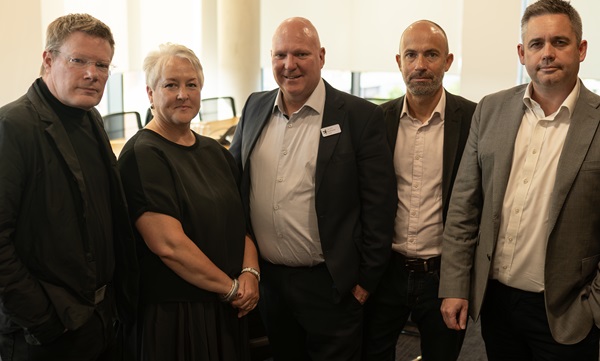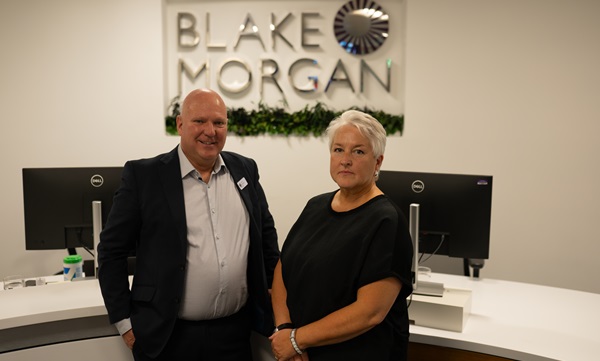Connecting Capital and Country
Industry leaders have shared their perspectives on maximising the wider benefits of Wales’ transport opportunity at a round table event hosted by Cardiff Business Club in partnership with the Design Commission for Wales (DCFW).
James Price, Chief Executive of Transport for Wales and Ewan Jones, Chair of DCFW and a Partner at Grimshaw with an international reputation for design excellence, were the guest speakers at the first in a series of conversational business events to be hosted by Cardiff Business Club. The event was Chaired by Carole-Anne Davies, Chief Executive of DCFW.
The discussion focussed on three key themes of why the quality of place matters, the need for long- term planning to secure capital investment and how embracing all modes of transport with behavioural change will benefit future generations in Wales.

Guests shared their perspectives on the importance of prioritising the movement of people while strengthening connections between people and places with well-designed and safe walking, cycling and public transport routes to reduce the dependence on cars, maximise choice and help drive economic growth.
James Price, Chief Executive, Transport for Wales said:
“Good design ensures that whatever transport solutions we develop, they are all centred around people’s needs and how this helps them in their everyday lives. Having conversations that challenge our thinking, bring in new perspectives and view priorities through a different lens helps us to improve the projects and services we deliver. I look forward to future conversations on these important topics.”

Carole-Anne Davies, Chief Executive of DCFW said:
“This discussion focussed minds on the need to crystalise a vision for high quality places that benefits our environment, our economy, our society, and our culture.
“Connectivity is a key driver of a more prosperous, more equal, and healthier Wales which demands an integrated approach to national, regional and local planning and development. Having recorded 25 million rail and 60 million bus passengers in the last year, Transport for Wales has seen year-on-year growth of 20% but James Price is right to recognise that the pace and scale of change is a long-term challenge that requires a shared vision and investment in the quality of place with an integrated transport system to ensure competitiveness and drive economic growth, pan-Wales.
“Accompanying this, our Chair Ewan Jones noted that transport needs to be designed to meet the needs of people. From those doing the daily school-run or living in rural communities to leisure users and night-time economy workers – our needs are all different. Creating an integrated transport system and increasing the availability of services – so that people can easily choose and change between bus or train to cycling or walking or utilise multiple modes of travel with one ticket – will be key to enabling effective behavioural change if we want greater use of public transport.
“Encouraging behavioural change requires better understanding of human decision making. Quoting from “Transport for Humans” by Dyson and Sutherland, he said: “Engineers plan transport systems, people use them. But the ways in which an engineer measures success – speed, journey time, efficiency – are often not the way that passengers think about a good trip. We are not cargo. We choose how and when to travel, influenced not only by speed and time but by habit, status, comfort, variety – and many other factors that engineering equations don’t capture at all.”
“Good design creates high quality places that are easy to use, attractive places to live and work. They attract talent and investment. Taking a longer-term view and joined-up strategic approach is essential for land use and project portfolio planning, and will help create conditions where good design can thrive and a transport system that connects people to opportunity from capital to country.”

Phil Jardine is Chair of Cardiff Business Club. He said:
“This round table was a great opportunity to share perspectives and consider the art of the possible. It wasn’t about attacking the car but recognising that climate change, the coronavirus pandemic and changing work–life patterns and priorities are shaking up long-held assumptions. There is a new way forward and the task is now how we take this conversation forward and do what we can to help drive the future agenda for Wales and influence long-term change.”
Details on future events being hosted by Cardiff Business Club are available at www.cardiffbusinessclub.org
